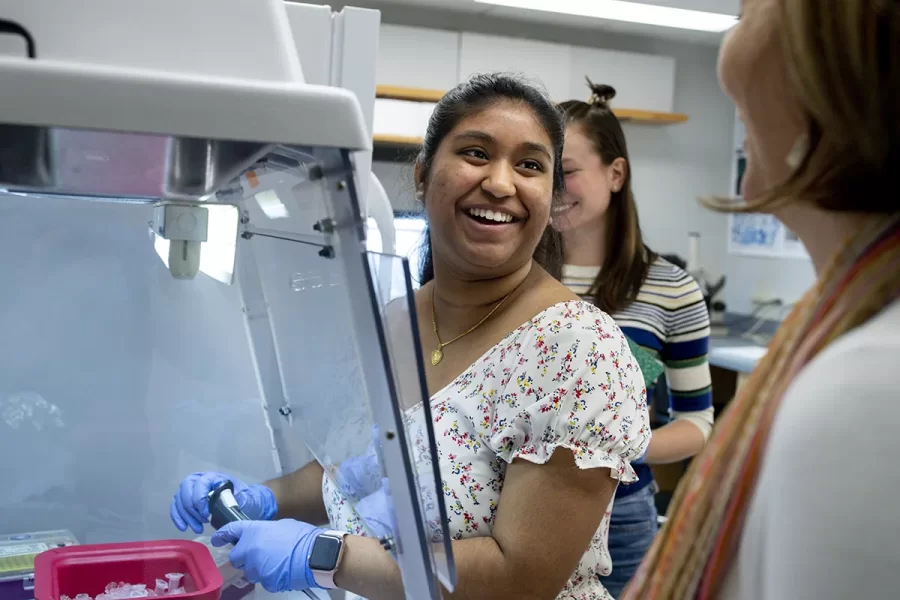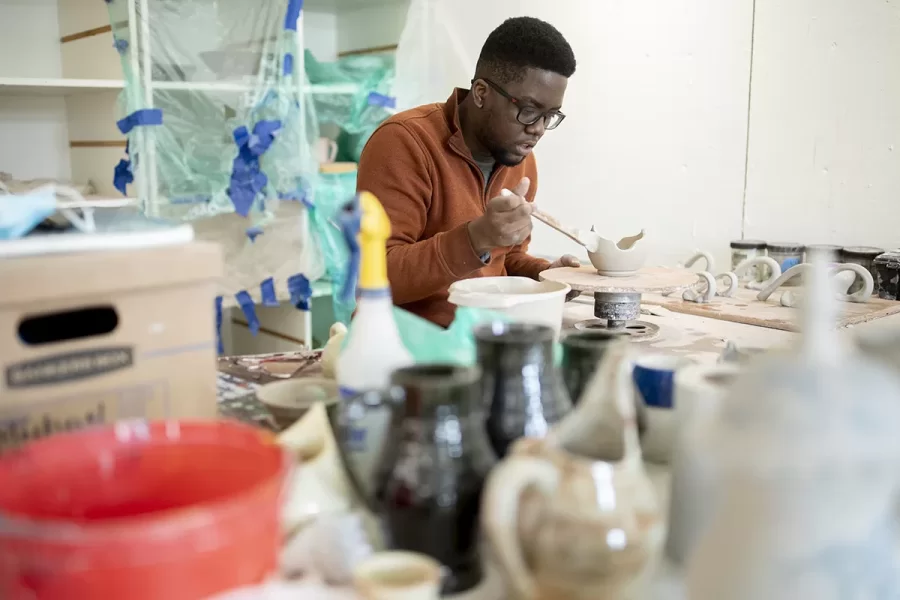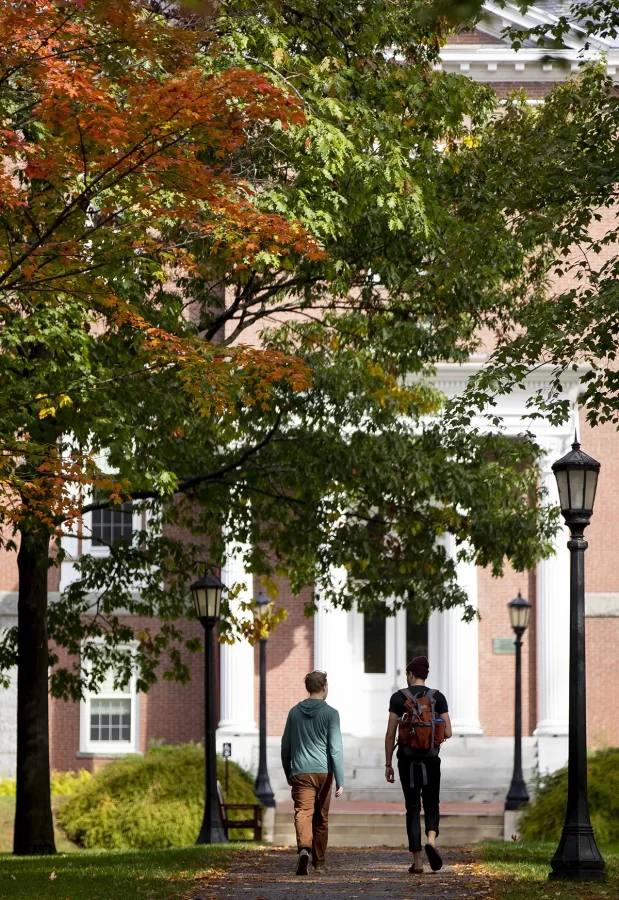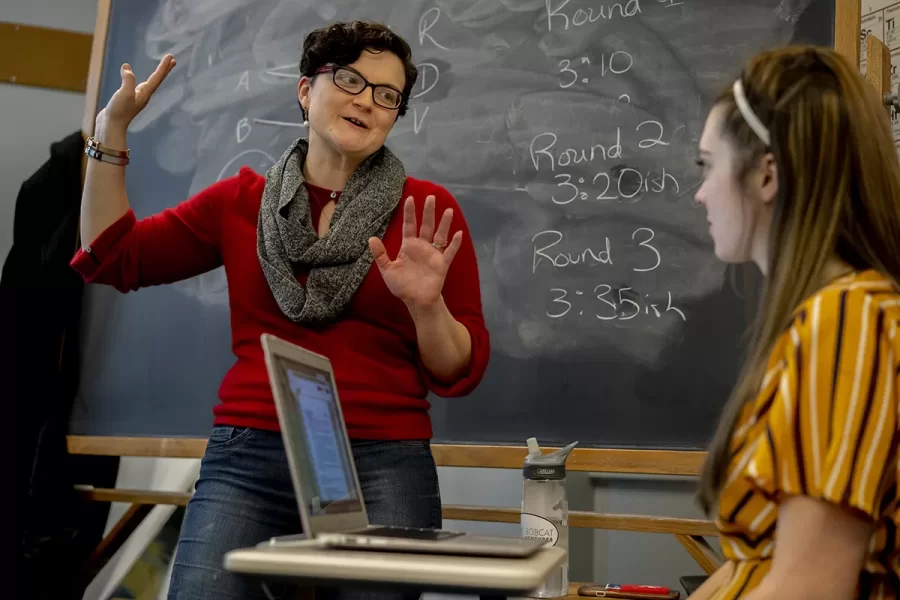Innovation and Inclusivity in the Classroom
Bates’ new Center for Inclusive Teaching and Learning (CITL) is transforming the future of education at Bates. Delivering exceptional and inclusive liberal arts experiences requires intention. Grounded in Bates’ commitment to rigorous scholarship and dedicated to maximizing the transformative power of our differences, the CITL helps our faculty grow and develop as educators at the forefront of their profession. It will ensure that all Bates students benefit from innovative and inclusive teaching practices across all departments from STEM to the Arts.
At a Glance
Faculty have:
Individual consultations and coaching offering targeted approaches to address their particular classroom needs and goals. The opportunity to participate in collaborative observations with CITL staff that promote new skills as reflective and intentional teachers. Professional development, programs, workshops, and events throughout the year.
Students have:
The opportunity to work with an extraordinary faculty of teacher-scholars who continually challenge themselves and their peers in their commitment to providing transformative and inclusive learning experiences. An educational experience based on transparent communication of expectations and evidence-based best practices. Improved opportunities for building trust between themselves and their teachers.
Leading the Way
This initiative is part of a national movement in higher education where students and faculty are calling for more engaging, collaborative, immersive learning experiences, demonstrating a seismic shift in expectations.
We have seen this clearly at Bates over the past year. Under the leadership of Director Lindsey Hamilton ‘05, the CITL has become an active campus hub for professional development.
- 78 percent of faculty participated in at least one CITL program last year, leading participation rates nationally.
- Programming surveys show that 93 percent of participants find the programming well-organized, relevant, and engaging. By taking such a distinctive approach to how faculty are educating their students, Bates is leading the way in inclusive education. This is the future of the liberal arts.
By taking such a distinctive approach to how faculty are educating their students, Bates is leading the way in inclusive education. This is the future of the liberal arts.

“You cannot be an effective educator for all without considering inclusion. Inclusive teaching is effective teaching. You cannot have one without the other.”
Lindsey R. Hamilton, Ph.D Director of Bates College Center for Inclusive Teaching and Learning
5-Year Plans for the Center
Growth
- Continue to have one new Faculty Fellow on board each semester for steady recruitment, planning, and implementation.
- Recruit and partner with one new Staff Fellow each year to expand reach on campus and bring new perspectives.
- Develop Student Fellows as pedagogical partners to work with faculty in promoting engaged and inclusive learning environments. Culture
- Design accessible, inclusive learning environments that revolve around the needs of our students, and, ultimately, help all students learn and succeed.
- Commit to continuous improvement through assessment at all levels of the college, and strive for data-driven decision-making.
- Foster the idea of Scholarship of Teaching and Learning, wherein educators will understand that we are all scholars of our discipline as well as teaching and learning.
- Reimagine the writing curriculum in the age of generative artificial intelligence.
Gift Opportunities
Grant funding from the Mellon Foundation, Howard Hughes Medical Institute, and Davis Educational Foundation will support the development and first three years of operation of the Center. Bates seeks support to ensure that the CITL continues to aid faculty and students for generations to come. Endowment opportunities are available, as permanent funding is crucial to the long-term success of the Center.
- $50,000 helps support the Center’s faculty fellows program for a year.
- $100,000 or more will establish an endowed CITL fund that will help support the annual costs of running the Center in perpetuity, including a guest speaker series, training, workshops, and more.
- Please ask about naming opportunities for the Center, located in the newly renovated Dana Hall in the center of campus.
FOR MORE INFORMATION
Rebecca Lazure
Director of Gift Planning
207-786-6476
rlazure@bated.edu


